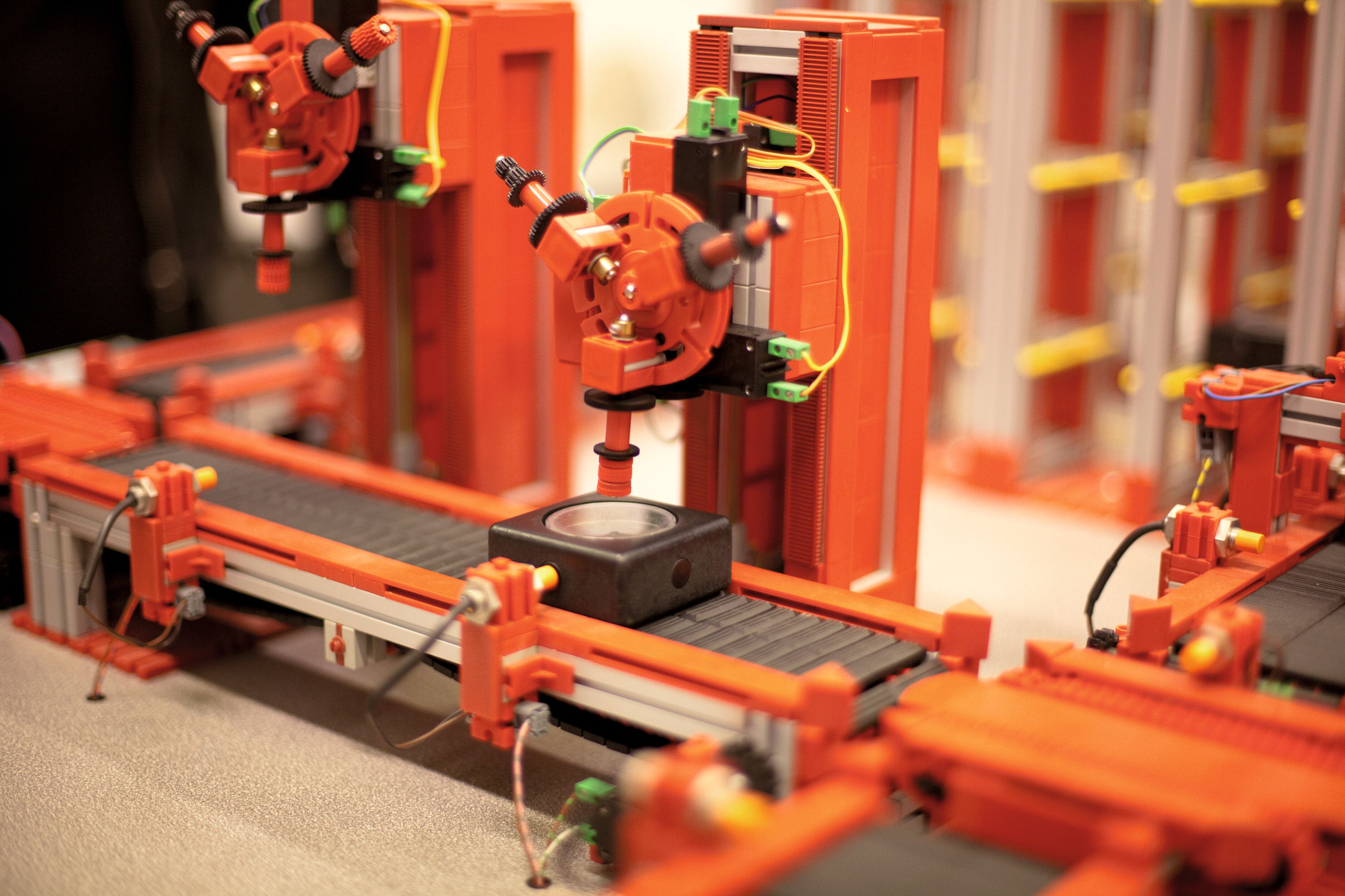Industrial engineering, technology management
In order to optimize processes at the interface between business and technology, companies and administrations need specialists with general technical and business knowledge.

Overview of the academic discipline
Experts in the field of industrial engineering and technology management are familiar with both technical aspects and business management requirements. They not only mediate between topics and teams, but also between different ways of thinking and working, for example between computer scientists, technicians and administrative staff.
Which topics are included in the curriculum?
The course includes business and social science knowledge as well as training in the chosen engineering discipline, such as mechanical engineering, electrical engineering, civil engineering, chemical and process engineering or transportation.
In their chosen field of engineering, students acquire knowledge of the specific engineering and scientific fundamentals. There are also economics modules on micro and macroeconomics, business accounting, marketing, production management, project management, statistics, business law and logistics. Mathematical modules such as analysis, linear algebra and computer science content are also part of the program in many cases.
What are the requirements?
In some cases, pre-study internships in the commercial or technical field are mandatory. Good knowledge of the following school subjects is helpful: Mathematics, physics and economics/law.
What study programmes are there to choose from?
Study programmes in this field are mainly called ‘Industrial Engineering’, often with a subject-specific focus such as ‘Industrial Engineering Food’. However, degree programmes such as ‘Production and Management’, ‘Project Management’, ‘Technical Sales’ and of course ‘Technology Management’ are also part of this engineering field of study.
Students often study engineering - less frequently natural sciences or computer science - and economics at the same time. There are numerous specialisation options, for example in civil engineering, electrical engineering and information technology, mechanical engineering, biotechnology, logistics or product management.
The proportion of engineering and business studies content varies greatly from location to location. Applicants should therefore obtain detailed information about the respective profile of the degree programme before starting their studies.
What job opportunities are there after graduation?
As interdisciplinary specialists at the interface between technology and economics, industrial engineers and technology managers work in almost all technical and economic functional areas, such as sales and marketing, logistics and materials management, production and manufacturing, facility management, quality management and finance and accounting.
There are employment opportunities primarily in larger production companies in all sectors. However, commercial enterprises, consulting and business advisory firms as well as larger transport companies also offer jobs. The respective engineering specialisation largely determines the sector in which industrial engineers can work.
